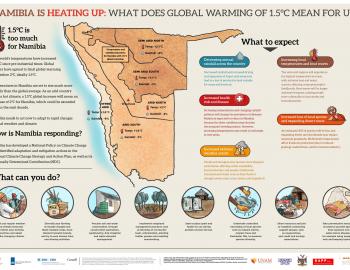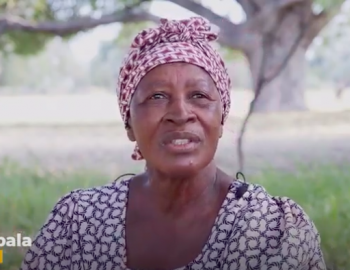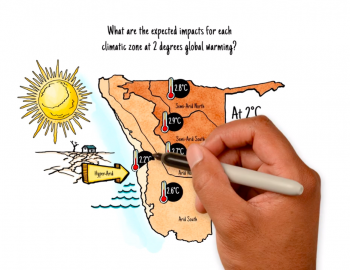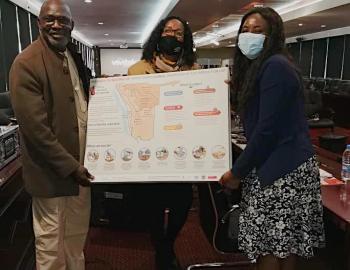Strengthening regional climate change governance through integrating gender-responsive climate action in Namibia
Strengthening regional climate change governance through integrating gender-responsive climate action in Namibia
The University of Namibia (UNAM), in partnership with CDKN, launched this project in Namibia in October 2019. The project focuses on achieving climate-resilient rural and community development in Namibia by strengthening climate change governance at the regional and local level through the integration of gender-responsive climate action into regional plans and projects.
Context
This project builds on work done by the Adaptation at Scale in Semi-Arid Regions (ASSAR) project since 2014. One of ASSAR’s findings in Namibia was that unequal levels of power and influence between national and sub-national levels of decision-making through to local actors were the main systemic barrier with regards to adaptation governance in Namibia. In addition, it found that because social groups are heterogenous in their adaptive capacities, any adaptation strategy or intervention needed to take this into consideration.
Project objective
The project’s overall vision is to respond to three of the ASSAR project’s recommendations:
- Improving collaboration - among government, non-government organisations, academia and communities - to produce adaptation information that is reliable and relevant to local subsistence farmers while engaging with local communities;
- Adaptation policy approaches should consider interactions of gender, ethnicity, age, household composition, marital status and social capital as important determinants of vulnerability; and
- Building capacity of local actors to engage in local and cross-scalar adaptation governance is critical.
Project activities and outputs
The project will use the Oxfam Vulnerability Risk Assessment (VRA) methodology to:
(i) Identify risks and opportunities, create awareness of the regional level planning and decision-making bodies and community members regarding the implications of climate change on Namibia’s rural communities in Oshana Region.
(ii) Improve the Ministry of Gender Equality and Child Welfare (MGECW)’s institutional capacity to achieve a gender responsive and socially inclusive community development approach when selecting beneficiaries for income generating activities.
(iii) Engage with Constituency Development Committees as well as Regional level platforms in Oshana and Omusati Regions to create climate change urgency and gender-responsive climate change actions at these levels.
Partners: The Desert Research Foundation of Namibia (DRFN), the Ministry of Gender Equality and Child Welfare (MGECW), the Ministry of Urban and Rural Development, the Oshana Regional Council, the Omusati Regional Council, the Ministry of Environment and Tourism (including the Namibia Environmental Education Network – NEEN), Southern African Science Service Centre for Climate Change and Adaptive Land Management (SASSCAL), Development Aid from People to People (DAPP) and the Ministry for Agriculture, Water and Forestry





